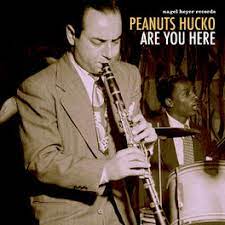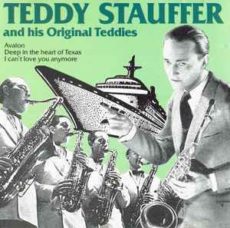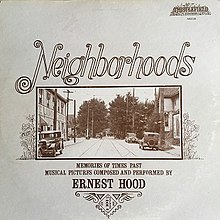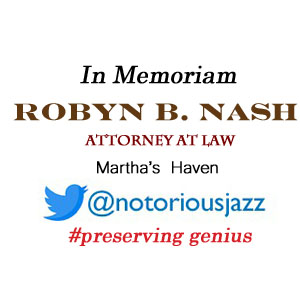
Daily Dose Of jazz…
Peanuts Hucko was born Michael Andrew Hucko in Syracuse, New York on April 7, 1918. He moved to New York City in 1939 where he played tenor saxophone with Will Bradley, Tommy Reynolds, and Joe Marsala until 1940.
After a brief time with Charlie Spivak, he joined the Glenn Miller Army Air Force Band while serving in Europe during World War II. During this time, Peanuts began to concentrate on the clarinet. He was featured in Miller’s hard-driving versions of Stealin’ Apples and Mission to Moscow. Post-war, he played in the bands of Benny Goodman, Ray McKinley, Eddie Condon and Jack Teagarden. From 1950 to 1955, he was busy in New York as a studio musician for CBS and ABC.
He continued working with Goodman and Teagarden, When he visited Tokyo, Japan in 1951 as the lead alto saxophonist in Benny Goodman’s Orchestra, he listened to clarinetist Shoji Suzuki and his Rhythm Aces. With Suzuki and his band, they recorded the song Suzukake No Michi, which broke sales records in Japan. He then joined the Louis Armstrong All-Stars for two years from 1958 to 1960.
Hucko led his own group at Eddie Condon’s Club from 1964 to 1966. He became known for his work with Frank Sinatra as the clarinet soloist on Cole Porter’s What Is This Thing Called Love?, which was featured on Sinatra’s album In the Wee Small Hours. In 1964, he opened his own nightclub Peanuts Hucko’s Navarre, in Denver, Colorado which featured his singer wife Louise Tobin and Ralph Sutton. From 1966, he was featured regularly at Dick Gibson’s Colorado jazz parties where he appeared with the Ten Greats of Jazz, later called the World’s Greatest Jazz Band.
The Seventies saw Peanuts leading the Glenn Miller Orchestra and toured across the U.S. and abroad. He also toured with the Million Airs Orchestra, and appeared with the Lawrence Welk Orchestra. The next decade he toured with his Pied Piper Quintet before going into semi-retirement with his wife in Denton, Texas. He recorded his last session Swing That Music in 1992 featuring Tobin, trumpeter Randy Sandke, and pianist Johnny Varro.
As a composer he wrote or co-wrote See You Again, A Bientot, Peanut Butter, Blintzes Bagel Boogie, Falling Tears, First Friday, Tremont Place, and Sweet Home Suite. Big band clarinetist Peanuts Hucko, who sometimes played saxophone, transitioned in Fort Worth, Texas on June 19, 2003 at the age of 85.
More Posts: bandleader,clarinet,club owner,history,instrumental,jazz,music,saxophone

Daily Dose Of Jazz…
Ernst Heinrich “Teddy” Stauffer was born May 2, 1909 In Murten, Fribourg, Switzerland He was dubbed Germany’s “Swing-King” of the 1930s. He formed the band known as the Teddies, which is also billed as the Original Teddies or the International Teddies, which continued after he left in 1941.
Annual trips to the Swiss cities of St. Moritz, Arosa and also a guest appearance in London, England were responsible for the international fame of the Teddies band. Until 1939, he appeared with his Original Teddies-Band especially in Berlin and Hamburg, Germany. He enjoyed his popularity at the 1936 Olympics, had hits with Goody~Goody, and turned Horst Wessel Lied, the National Socialist’s anthem, into a jazz number in 1938. With his jazzy swing music, however, Stauffer increasingly got in trouble with the Reichsmusikkammer, a Nazi institution that promoted “good German music” which was composed by Aryans and seen as consistent with Nazi ideals.
Returning to Switzerland in 1939, he eventually emigrated to the United States and then to Mexico. His reputation as a playboy and a well~known womanizer who was married to Hedy Lamar, did not sway him from also having affairs with Rita Hayworth and Barbara Hutton.
Violinist, saxophonist and bandleader Teddy Stauffer who was also an actor, nightclub owner, and restaurateur transitioned on August 27, 1991 in Acapulco, Mexico at the age of 82.
More Posts: bandleader,club owner,history,hotelier,instrumental,jazz,music,saxophone,violin

Daily Dose Of Jazz…
Ernest Hood was born on June 2, 1923 in Portland, Oregon. During the 1940s he was a jazz guitarist in the Portland, Oregon area in the 1940s. He played with his brother Bill and saxophonist Charlie Barnet.
Hood contracted polio in the 1950s, which confined him to using a wheelchair for the rest of his life. No longer able to hold a guitar, he started playing the zither. He played zither on some of Flora Purim’s early albums.
His only studio album, Neighborhoods, was recorded and self~released in 1975 and is a work of ambient music that explores the soundscapes of Portland, Oregon suburbia through a collage of field recordings layered with Hood’s zither and synthesizer melodies. Only one thousand copies were pressed during its original production run. After remaining in obscurity for over 40 years, it was reissued by Freedom to Spend in 2019.
Hood, who often went by Ern or Ernie, was a major figure in Portland’s music scene. He helped found KBOO, a nonprofit FM radio station that still exists today in the city. The radio show he hosted, Radio Days, on KBOO and KOAP, aimed for the same kind of audience his record Neighborhoods did, one that wanted to relive the serenity of the past.
He was also involved in launching the city’s first jazz club, The Way Out. Avant~garde zither and keyboardist, and radio host Ernest Hood, passed away in 1995.
More Posts: bandleader,club owner,history,instrumental,jazz,keyboards,music,radio host,zither




